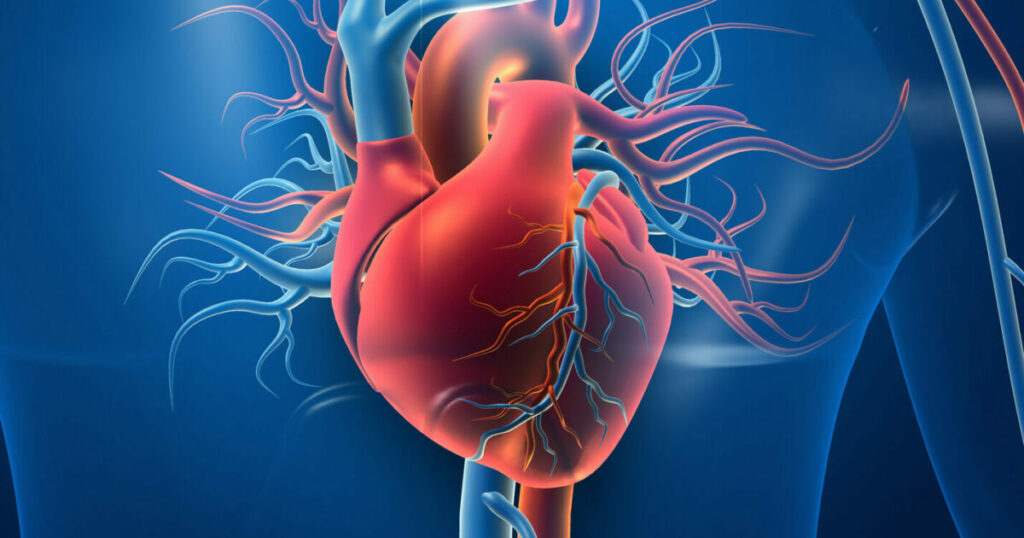High-protein diets have become a dominant force in the ever-evolving world of nutrition. But the carnivore diet takes this concept to a whole new level, one some might say borders on the extreme. This restrictive regimen eliminates everything but meat, fish, and some animal products, leaving a trail of excluded fruits, vegetables, grains, and legumes in its wake. Proponents hail it as a revolutionary approach to weight loss and chronic disease management, painting a picture of vibrant health fueled solely by animal flesh. However, a closer examination reveals a trend more sizzling with hype than backed by solid science.
The Core Concept and its Carnivorous Cousins
Unlike its high-protein brethren like keto or paleo, the carnivore diet doesn’t just limit carbs – it eliminates them entirely. Proponents believe that mimicking the ancestral diets of early humans, who presumably relied heavily on hunted meat, is the key to optimal health. However, this comparison is often oversimplified. While early humans did consume meat, they also likely incorporated a wider variety of foods depending on their specific environment and resources. Additionally, their lifespan and overall health were significantly lower compared to modern humans following balanced diets.

The Sizzle: Potential Benefits (with a Side of Skepticism)
Despite the lack of robust scientific evidence, some individuals report experiencing positive effects on the carnivore diet.
- Weight Loss: The high protein content of the diet can lead to feelings of satiety, potentially reducing overall calorie intake and promoting weight loss. However, this effect may be temporary, and the lack of fiber can lead to constipation, potentially masking true weight loss.
- Improved Energy Levels: Some people claim to experience a surge of energy on the carnivore diet. This could be due to the readily available protein for fuel, but long-term effects are unknown.
- Reduced Inflammation: Certain proponents suggest the diet can alleviate symptoms of autoimmune conditions linked to inflammation. However, the high saturated fat content in meat may actually contribute to inflammation. More research is needed to explore this potential connection.
The Smoke and Mirrors: Unveiling the Drawbacks
While the carnivore diet may hold some allure, the potential drawbacks are substantial.
- Nutrient Deficiencies: Eliminating entire food groups creates a significant risk of nutrient deficiencies. Vitamin C, crucial for immune function and collagen production, is virtually absent in a meat-only diet. Other potential deficiencies include fiber, essential for gut health, and B vitamins, vital for energy metabolism.
- Increased Risk of Chronic Disease: The high saturated fat content of a meat-heavy diet may contribute to heart disease, stroke, and certain cancers. While research is ongoing, the potential risks cannot be ignored.
- Kidney Strain: The body processes protein through the kidneys. A high-protein diet can place undue stress on these organs, potentially leading to complications for those with pre-existing kidney issues.
- Social and Psychological Implications: Sharing meals is a fundamental aspect of human connection. A diet that restricts most options can make social situations awkward and potentially lead to feelings of isolation. Additionally, the restrictive nature of the carnivore diet can increase the risk of disordered eating behaviors.
Exploring Alternatives
If you’re looking to improve your health and well-being, the carnivore diet is likely not the sustainable or healthy answer. Here are some more balanced and evidence-based approaches:
- The Mediterranean Diet: Emphasizing fruits, vegetables, whole grains, legumes, and healthy fats like olive oil, this diet has been linked to numerous health benefits, including reduced risk of heart disease, diabetes, and Alzheimer’s disease.
- The DASH Diet: Designed to lower blood pressure, this diet focuses on fruits, vegetables, whole grains, and low-fat dairy products, with limited red meat, saturated fat, and added sugars.
- The Flexitarian Diet: This approach encourages a mostly plant-based diet with occasional inclusion of meat, poultry, or fish. It offers flexibility while promoting a focus on fruits, vegetables, and whole grains.
Consulting a Healthcare Professional: The Key to Finding the Right Fit

Before embarking on any significant dietary change, consulting with a registered dietitian or healthcare professional is crucial. They can assess your individual needs, health conditions, and goals to create a personalized plan that promotes sustainable health and well-being.
The Final Sizzle: Embracing a Balanced Approach
The human body thrives on a variety of nutrients found in a well-balanced diet. While the carnivore diet may hold some initial appeal, the potential downsides outweigh the limited and often anecdotal benefits. By focusing on a balanced approach rich in fruits, vegetables, whole grains, and lean protein, you can achieve optimal health and well-being in a way that’s sustainable and enjoyable.
So, ditch the fad and embrace a dietary approach that nourishes your body and fuels your life for the long haul. Let’s delve deeper into some of the key concerns surrounding the carnivore diet and explore the science behind them.
Digestive Distress and Deficiencies: A Looming Shadow
One of the most significant drawbacks of the carnivore diet is its potential to disrupt your digestive system. Fiber, primarily found in plant-based foods, plays a critical role in gut health. It promotes regularity, feeds the beneficial gut bacteria, and aids in digestion. Eliminating fiber intake can lead to constipation, bloating, and hemorrhoids. Additionally, the high protein content in meat can put a strain on the digestive system, potentially leading to nausea, heartburn, and indigestion.
Beyond digestive woes, the carnivore diet carries a high risk of nutrient deficiencies. As mentioned earlier, vitamin C is virtually absent in a meat-only diet. This vital nutrient is essential for immune function, collagen production, and wound healing. Deficiency can manifest as fatigue, weakened immunity, and even scurvy, a historical disease characterized by bleeding gums, fatigue, and skin lesions.
Other potential deficiencies include:
- B vitamins: Crucial for energy metabolism, red blood cell production, and nervous system function.
- Iron: Plays a vital role in oxygen transport throughout the body. Deficiency can lead to fatigue, shortness of breath, and anemia.
- Calcium: Essential for strong bones and teeth. While some meats contain calcium, the bioavailability (absorption by the body) is lower compared to plant sources like leafy greens and fortified dairy products.
The Heart of the Matter: Cardiovascular Concerns

The high saturated fat content of a meat-heavy diet is a major concern for heart health. Saturated fat can elevate LDL cholesterol (“bad” cholesterol) levels, increasing the risk of atherosclerosis, a condition characterized by plaque buildup in the arteries. This buildup can narrow arteries, restrict blood flow, and ultimately lead to heart attack or stroke.
While some proponents argue that the carnivore diet promotes weight loss, which can counter the negative effects of saturated fat, the long-term consequences of a high-fat, low-carb diet on cardiovascular health remain unclear. Additionally, the lack of fiber in the carnivore diet can further contribute to heart disease risk by hindering the body’s ability to remove LDL cholesterol.
The Kidneys: Can They Handle the Heat?
The human body processes protein through the kidneys. A high-protein diet, like the carnivore diet, can place undue stress on these organs. Over time, this increased workload can lead to kidney dysfunction, particularly for individuals with pre-existing kidney issues. Consulting a healthcare professional before embarking on a high-protein diet is crucial, especially for those with any kidney concerns.
Beyond Physical Health: The Mental and Social Costs
The restrictive nature of the carnivore diet can have negative consequences beyond physical health. Sharing meals is a fundamental aspect of human connection. A diet that excludes most plant-based foods can make social situations awkward and isolating. Additionally, the strict limitations of the carnivore diet can increase the risk of developing disordered eating behaviors, particularly for those with a history of such struggles.
A Look at the Science: What the Research Says
While anecdotal evidence exists for some individuals experiencing positive effects on the carnivore diet, robust scientific research is lacking. Long-term studies investigating the safety and effectiveness of this restrictive approach are limited. Most existing research focuses on the benefits of balanced diets rich in fruits, vegetables, whole grains, and lean protein.
The Bottom Line: Fad or Future?
The carnivore diet, while intriguing at first glance, lacks the scientific backing to be considered a healthy or sustainable approach to long-term well-being. The potential for nutrient deficiencies, digestive issues, and increased risk of chronic diseases outweigh the limited and often anecdotal benefits.
If you’re looking to improve your health and achieve optimal well-being, a balanced and evidence-based dietary approach is the key. Consider exploring established dietary patterns like the Mediterranean diet, the DASH diet, or the flexitarian approach. These plans promote a variety of nutrient-rich foods while allowing for some flexibility.
Remember, the best diet is the one that you can adhere to in a sustainable way, one that nourishes your body, fuels your energy levels and supports your overall health and well-being. Consult with a registered dietitian or healthcare professional to create a personalized plan that meets your individual needs and goals. After all, a healthy and balanced approach is the recipe for a long and fulfilling life.



